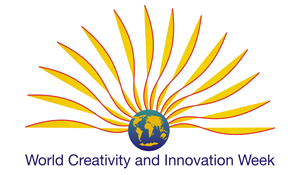Stanford Crash Course on Creativity – Framing & Reframing – Week 3
This week’s lesson is about shifting a frame of reference or point of view to unleash imagination. Reframing is a great way to see any situation in a fresh light.
In the early days of creativity training people were asked, think of as many uses of a paper clip as you can as an exercise for divergent thinking – an example of how thinking can be stretched beyond its perceived limitations.
This is a photograph of Boudin Bakery sourdough bread inside their Fisherman's Wharf. (Photo credit: Wikipedia)
This week’s focus is all about seeing things differently and generating new and different ideas with a twist. Instead of coming up with many different uses and/or improvements, students are asked to ‘look at bread in new ways’, to create as much “value’ as possible starting with one loaf of bread. The instructions continue. “You can use any type of bread you like, and measure value in any way you want. Use this as an opportunity to be creative.” (Isn’t there research on the influence of instructions on the output of creativity exercises? When telling people to be creative, does is work, I forget). The overarching question: What will you do with one loaf of bread? Do I smell a SCAMPER* coming on? The yeast also rises! Or… perhaps a first look at important values and attach bread to them in a way – hm. How to relate bread to world peace, or to happiness? hm indeed.
I’m intrigued by the subtle shift away from generating alternate uses and/or improvements toward creating value. Do you suppose that might signal a difference between the approach to creativity then (1970′s), and now?
*Scamper, is an acronym for different lenses to use when generating ideas to explore different perspectives and directions. The words represented are: Substitute, Combine, Adapt, Modify, Put to Other Uses, Eliminate and Rearrange, created by educational administrator Bob Eberle in the 1970′s using Alex Osborn’s modifying verbs. Osborn is credited as the originator of brainstorming.
The resources for this week:
The Powers of 10 (from 1977) (I loved that film then and look forward to seeing it again. Take a look for yourself, it’s brilliant.)
Related articles

